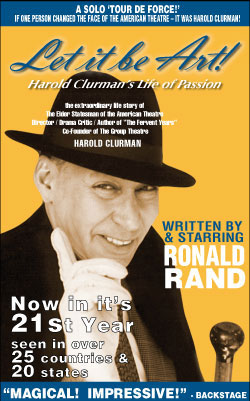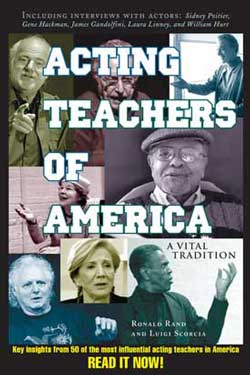Kerry Gilbert
 Influenced by the nearby Muscle Shoals music scene, Kerry Gilbert formed the KGB (Kerry Gilbert Band) in 1992, performing across northern Alabama from benefits to festivals, even at nursing homes.The KGB consists of Kerry Gilbert, Alyssa Ashley, Hugh Banks, Shane Goodson, Mitchell Curtis and Randy Kimbrough. Mr. Gilbert is the recipient of the first Star Player of Alabama honor at the Alabama Music Hall of Fame, and received the 2014 Franklin County Citizen of the Year Award. (Alyssa Ashley joined us for the interview.)
Influenced by the nearby Muscle Shoals music scene, Kerry Gilbert formed the KGB (Kerry Gilbert Band) in 1992, performing across northern Alabama from benefits to festivals, even at nursing homes.The KGB consists of Kerry Gilbert, Alyssa Ashley, Hugh Banks, Shane Goodson, Mitchell Curtis and Randy Kimbrough. Mr. Gilbert is the recipient of the first Star Player of Alabama honor at the Alabama Music Hall of Fame, and received the 2014 Franklin County Citizen of the Year Award. (Alyssa Ashley joined us for the interview.)
You’re originally from Russellville, Alabama. It must mean a great deal to you to keep playing in your hometown every month for the past eight years at the famous Roxy Theatre in downtown Russellville.
Photo at right: Kerry Gilbert at Flobama, Florence, Alabama - photo by Ronald Rand
Kerry Gilbert: Being at The Roxy has been so special. That theatre means a whole lot to me. It’s where my dad first met my mom in 1955. They met there on a blind date. I feel its come fun circle. And before both my parents passed away, they enjoyed coming out to see the shows we did. That means a lot to me. We’ve been playing there for eight years. I’ve got to believe that we’re one of the longest continual and consecutive productions of music groups playing in one place. We’ve probably have over a hundred shows, and every show is different.
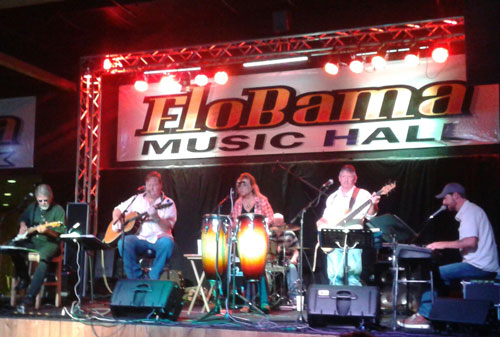
KGB Band (Kerry Gilbert, Alyssa Ashley, Hugh Banks, and Mitchell Curtis, Shane Goodson, Randy Kimbrough) at Flobama, Florence, Alabama - photo by Ronald Rand
We always try and play a show with a guest, I love having them come and giving the people an opportunity to hear them and for their music to especially be heard. I think it gives the show a little more texture. For ten bucks, it’s a great bargain. I think you can feel the love in the air during the night. Everyone’s always receptive and I think if you can move people you’re doing something right. I love the interaction.
You ‘re also out greeting everyone arriving at the theater, and you’re in the audience at intermission talking with everyone.
 Kerry Gilbert: I like communication with those people. I love people. My dad preached for forty years; he was a communicator, very well loved of people. He had a way with people, he didn't judge people. I watched him all my life, and I ended up being an entertainer, and enjoy connecting with the people who come.
Kerry Gilbert: I like communication with those people. I love people. My dad preached for forty years; he was a communicator, very well loved of people. He had a way with people, he didn't judge people. I watched him all my life, and I ended up being an entertainer, and enjoy connecting with the people who come.
How would you describe what music does for your soul?
Kerry Gilbert: Well, without music I wouldn’t last a minute; I don’t think I could function without it. I like the entertainment aspect, making people laugh or cry, and to be able to communicate with someone with my voice. I guess if I couldn’t do it, I’d wither away. I have to communicate.
KGB Band in front of The Roxy,
Russellville, Alabama with The KGB Band -
photo by Mary Carton
Alyssa Ashley: He wouldn’t say this but he does what he does because he loves the people who come. And he’s truly loved by them. You have people who adore his music. They tell me what a great man he is.
Kerry Gilbert: You didn’t tell me that. I try to let them know how much I appreciate them coming. And I love the interaction with people during the show and at intermission, to thank them for coming to the show. If they didn’t come I wouldn’t get to perform. The cancer has slowed me down but I haven’t quit.
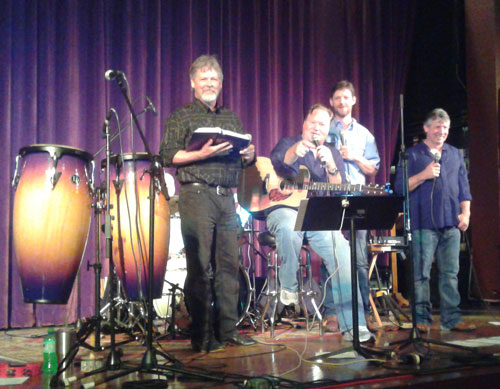
Hugh Grant, Kerry Gilbert, Shane Goodson and Mitchell Curtis of The KGB Band at The Roxy, Russellville, Alabama - photo by Ronald Rand
Alyssa Ashley: Even on the days when he doesn’t feel like performing he’ll go and sit with someone at a nursing home and play for them.
That must mean a lot to you.
Kerry Gilbert at Flobama, Florence, Alabama - photo by Ronald Rand
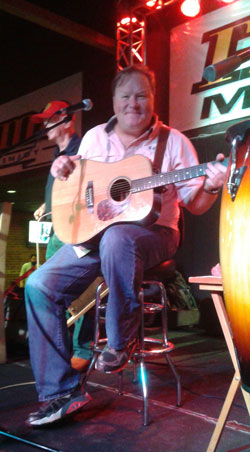 Kerry Gilbert: I love that most of all — the one-on-one. I used to do hospice work and would set it up with the family, and spend an hour. I’ve been called to someone’s death bed, singing “Amazing Grace. Leaning over their bed, tears would fall off my cheeks onto the bed.
Kerry Gilbert: I love that most of all — the one-on-one. I used to do hospice work and would set it up with the family, and spend an hour. I’ve been called to someone’s death bed, singing “Amazing Grace. Leaning over their bed, tears would fall off my cheeks onto the bed.
Have you ever gotten nervous or has it always seemed so natural to be playing music?
Kerry Gilbert: When I first started at eighteen years old, I guess I was a little nervous. I had sung all the way from 6th grade; I was in the chorus. I was a member of that for four years, part of an All-State chorus for four years; I was really loving every minute singing. I think once I got through the first song, I felt comfortable on stage.
In 1985, four Franklin County teenagers formed a quartet that became known as “Mountain Breeze.” A little of over ten years later, you were all competing on Nashville Network’s “You Can Be A Star, ” and you all won its nightly competition. Then you toured across the Southeast. Thirty years later, there was an amazing reunion.
Kerry Gilbert: Yes, we did that in January of 2016; it was a huge 30th year anniversary, and it sold out. The high school auditorium seats 1200 and people couldn’t get in. They basically got it together as a benefit because of my cancer. They raised $32,000; it was pretty amazing. I saw people I hadn’t seen in thirty years. It was something to have it in the hometown where we all started.
Where did the “Mountain Breeze” name come from? And how were all four of you able to make it work to stay together for as long as you did?
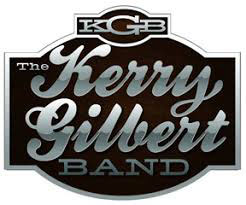 Kerry Gilbert: We were on a way to a contest to Huntsville and we also had a contact to go Memphis, and on the way I came up with the name. We all didn't stay together at the end, and I finally had to end the band in ’91. They had all left the band one by one. Kelly left in ’87, Trent left in ’88, then Joey left, and I’d replace them with new members but I wasn’t hearing the right sound so I “threw in the towel.”
Kerry Gilbert: We were on a way to a contest to Huntsville and we also had a contact to go Memphis, and on the way I came up with the name. We all didn't stay together at the end, and I finally had to end the band in ’91. They had all left the band one by one. Kelly left in ’87, Trent left in ’88, then Joey left, and I’d replace them with new members but I wasn’t hearing the right sound so I “threw in the towel.”
You also released your first solo album “The Heart Remembers When” in 2010, produced by Eddie Martin.
Kerry Gilbert: It was a big step. Eddie had been urging me to do it, and it was so unlike anything I had ever done. I’ve always been doing jingle work, doing voiceovers for documentaries. I’ve also had some parts in a few movies. And I’ve been the narrator for the Timmy Horton Outdoors fishing show on World Fishing Network. Timmy is a superstar outdoor professional bass fisherman and he’s been on NBC sports and several other networks with his weekly show and I’ve done voiceovers for his programs. I enjoy that. And if a particular group needs a bass line, I’ve done voiceover singles laying vocal tracks; I have always been a harmony person. But doing my own solo album was totally different with thirteen songs.
Alyssa Ashley, Kerry Gilbert of The KBG Band at
The Roxy, Russellville, Alabama - photo by Ronald Rand
 Eddie and I sat down; he’s a very good producer and we decided what songs to choose to achieve a stripped-down instrumentation, with a strong emphasis on the lyrics, and with my deep baritone, the vocals sounded very intimate. Eddie did a great job. I was very pleased how it turned out; I felt very blessed. Hugh Banks plays on the album, so does Donny Carpenter. I was very blessed to have such good friends on the album, who are so talented.
Eddie and I sat down; he’s a very good producer and we decided what songs to choose to achieve a stripped-down instrumentation, with a strong emphasis on the lyrics, and with my deep baritone, the vocals sounded very intimate. Eddie did a great job. I was very pleased how it turned out; I felt very blessed. Hugh Banks plays on the album, so does Donny Carpenter. I was very blessed to have such good friends on the album, who are so talented.
You also received the Star Player of Alabama honor at the Alabama Music Hall of Fame from Dixie Griffin - that must have meant a lot to you?
Kerry Gilbert: I was speechless; I didn’t think I deserved it. I don’t know why they chose me. I really didn’t feel qualified. It was a very emotional night; I was humbled by it to be the first one in the series.
The Kerry Gilbert Band has an amazing group of musicians and singersAlyssa Ashley, Randy Kimbrough, Mitchell Curtis, Shane Goodson, Hugh Banks and Byron Jamerson - how did it come about that all these talented artists become a part of The KGB Band?
Well, actually Alyssa and I were dating. She had been to several of my shows, and she had never asked to get up to sing. When I asked her if she’d like to sing at the Roxy, she accepted, and after two to three months, I told her “You’re in,” and she became part of the band. At that point, I couldn’t really say no,or she would have “had have my hide.”
Jim Seales was actually working as a guitarist with us, and also Donny Carpenter had been part of KGB for about four years, but Jim had a stroke and had to quit. That was when I got Hugh (Banks) to join the Band. I handpicked all the players; they’re allgood family people, and I don’t have to worry about them. I was so blessed when Mitch joined us. Randy (Kimbrough) have been with me fifteen years, Shane (Goodson) seven or eight years, and Hugh (Banks) been with me for about ten years.
What do you think makes it such a special experience for you and of the audience to hear The KGB Band?
I think what’s special about our show is the harmony and some bands don’t have the full-part harmony we have but that’s the core of our band. I emphasize the harmony. I’ve always done that since high school. What also makes it special is the interaction between the band. There’s no knowing what Shane will say. The other show it was about his tube of toothpaste in his pocket, and Hugh’s playing with a flyswatter, and he’ll do crazy stuff off the cuff, and people like that opossum that shows up.
Alyssa Ashley: “That happens naturally because the band has so much fun playing together and really care about each other.”
It must also continue to be somewhat challenging for you.
The chemo treatments give me “brain-fog” sometimes. Everyone has been standing beside me. It’s been four years this week and I’m still here. People tell me there’s a reason. I hope to help people if I can survive to be able to be a witness and help people that are struggling. I want to tell everybody about Jesus and what he’s done for me you got have faith.
One of the things we have to be grateful for are beautiful things we have in our lives, even in the face of sometimes great adversities.
I think growing up in home full of love with displays of affection, everyone hugging each other, telling each other we love has a lot to do with it. I watched Dad interact with people. I think it does come naturally. I have the gift to the ability to sit and just talk with others; Im a very simple person
Alyssa Ashley: He has the gift with every person he encounters, he makes them feel important. Even if he’s not feeling his best, he doesn’t let it get in his way. He exudes such energy and warmth, and he makes everyone feel glad to be together.
You’ve also been a Civil War re-enactor, a voice-over artist and actor in Civil War documentaries (which have aired on the History Channel) - It must have been special connecting to history in this way?
I didn’t mean to be a re-enactor but this guy encouraged me, so I went and bought a rifle and the uniform the same day. I like to “live” history, to put my hands on it, to re-create it in a way, I learned from reading books what uniforms they wore, how many stitches on the button holes, the different parts of the uniform. These guys during the Civil War made they own clothes. I learned what kind of dye they used and we’d do it ourselves and cut the uniform out and make clothes. So when we’d go on the battlefield and live history, we’d walk around the camp dressed up as if its’ 1861. We only did it on the weekend. Many of them have been doing for a lot of years. The soldiers were fighting for four years.
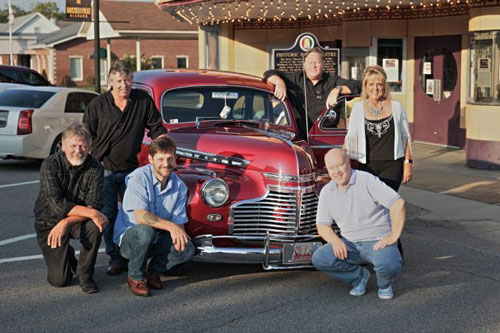
KGB Band in front of The Roxy, Russellville, Alabama with The KGB Band - photo by Mary Carton
And all these young kids come and watch and ask questions and learn about their history this way. I remember when I was a little kid and I was at Lookout Mountain at a black re-enactment of one of the battles, I was about nine years and one of the “soldiers” took time with me. I got to wear his coat. It made a big impression on me. I don’t do it anymore but I did it for years, starting in ’96 up until about 2005.
Alyssa Ashley:What’s at the heart of Kerry is he has a true respect and love, not only for history but for our country, a true patriot.
Kerry Gilbert: I think what these men did are an important part of living history. You have to keep it alive otherwise it will die. I wanted to be a school teacher. I got my degree in education at UNA (University of North Alabama), and like to talk about history with kids, showing them antiques I have so they can hold real history in their hands. I’ve always had a love of teaching of others. I went to the battlefield at Shiloh in ’77, I was ten years old, and I was changed forever, seeing the ground where you can still the affect on nature from what happened to the great loss of life there. bloody. I looked at photos and I’d see it literally for months, where the soldiers were actually laying at the end of the battle. It has a huge impact on a ten-year-old. I like to collect those kinds of relics. I have a passion for collecting antiques from our history.
I had been cast as one of the main actors in the film, “Bad Blood,” it was a movie about what caused the border wars between Missouri and Kansas and Missouri in the early 1850’s. They hired me and also rented several of my extra uniforms. I had done a lot of research on the different uniforms and as they war went on, they definitely got more ragged. It was very cool. I had also done some voiceovers for several other documentaries that have aired.
It was exciting to play a particular soldier and read their actual words, and to speak them, I had find the specific dialect from the actual county and town they came from. I tried to make it right for the memory of their lives. Some of them never left their town until they fought in the War. I loved to find the changes in my voice. People talked differently from one community to another three counties away. I have a passion for it.
You’ve also given a lot of young artists a chance to sing and be a part of your show at The Roxy.
Kerry Gilbert: I enjoy promoting others. I do like to use the Roxy for young talent. It’s a great platform for them to get on their feet. There’s a decent sized audience to really see if they want to pursue it.
I firmly believe in helping others to grow. I grew up with a faith that had acappello vocal singing. I developed an ear for pitch and harmony. I could tell if someone was on pitch; I could hear the harmonies naturally. It’s natural since I was brought up from birth every week going, week after week, sang “congregation-ally.” I could can hear the parts during this sacred singing. I think it’s played a huge part of how I hear music.
Alyssa Ashley: He has a very intuitive ear for new talent, even beyond a specific song. It’s been beautiful the way he’s used The Roxy as an avenue for singers. Kerry hears something in them and he does whatever he can to encourage them. He’s been encouraging a young singer when he was ten years old, and and now he has a deal with Warners with a major development deal and they’ve been grooming him.
Kerry Gilbert: He’s seventeen now and I’ve been able to let him play at several places, at festivals.
Alyssa Ashley: He’s just one of many Kerry has done that with. He’s recognized something in them and now they’re having careers in music.
Kerry Gilbert: I think that’s the reason we’re on this earth — to help each other to get to heaven. I want the people who come, who’ve chosen to spend their hard-earned money and who want to spend two or three hours, that they feel special. I think it’s probably how you feel when you’re performing. That you’re able to give them something because they’ve come to see a live actor doing a play
I can see with certain young musicians if they have what it takes, to have the stage presence you have to have. You can only learn it by doing. To learn how to handle a crowd. No matter how voice lessons you have, you have to learn how to work a crowd, to interact with the audience, they have to feel you care or they won’t come back. You have to have that to be a really good entertainer to be a singer
I can see that passion in a young person, if that have a natural ability. And I think that passion is basically love for mankind. If you can’t move a person I don’t think your job is complete. •







































